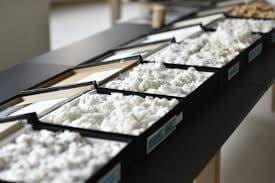Cotton is superior to synthetics and other fibre types for making non-surgical face masks to protect against COVID-19 infection and spread. The ability to absorb, dehydrate and deactivate the virus, combined with the fact it’s biodegradable and can be impregnated with antimicrobial nanoparticles, makes cotton the best choice for do-it-yourself face masks.
The main criteria for face masks are filtration efficiency, pathogen obstruction and physical comfort of the mask including breathability. Cotton fabric has been found to be superior to all other fabrics in all these respects, the International Cotton Advisory Committee (ICAC) said in a research paper this month. The research paper ‘The role of cotton in face masks’ points out that due to their unique physical, chemical and isoelectric properties, cotton fibres were found to be superior to synthetic fibres such as polyester and nylon in filtration and in being detrimental to viruses, pathogenic bacteria and fungi as well as in comfort and breathability. Mounting scientific evidence supports the recommendation of cotton being the preferred choice in face masks for protection against a wide range of harmful microbial pathogens including coronaviruses such as SARS-CoV-2, the research note said.
There are three critical characteristics that make cotton so effective in face masks: hydrophilicity, rough surface/adhesion hysteresis and a high iso-electric point, Keshav Kranthi, head of ICAC Technical Services and primary author of the document, said. “Where synthetics are hydrophobic and repel water, cotton absorbs it and destroys the envelope of moisture that surrounds and protects the virus,” Kranthi explained. “Cotton’s rough surface is much better for trapping nano-sized virions than the smooth surface found on synthetic fibres, and its higher iso-electric point is effective at reducing the virus’s survival and recovery efficiency.”

